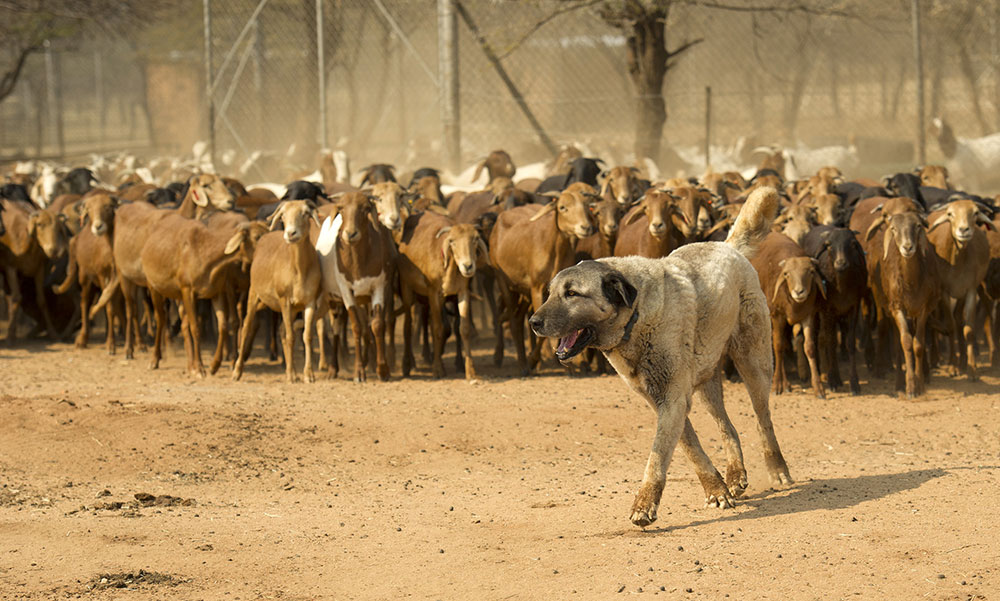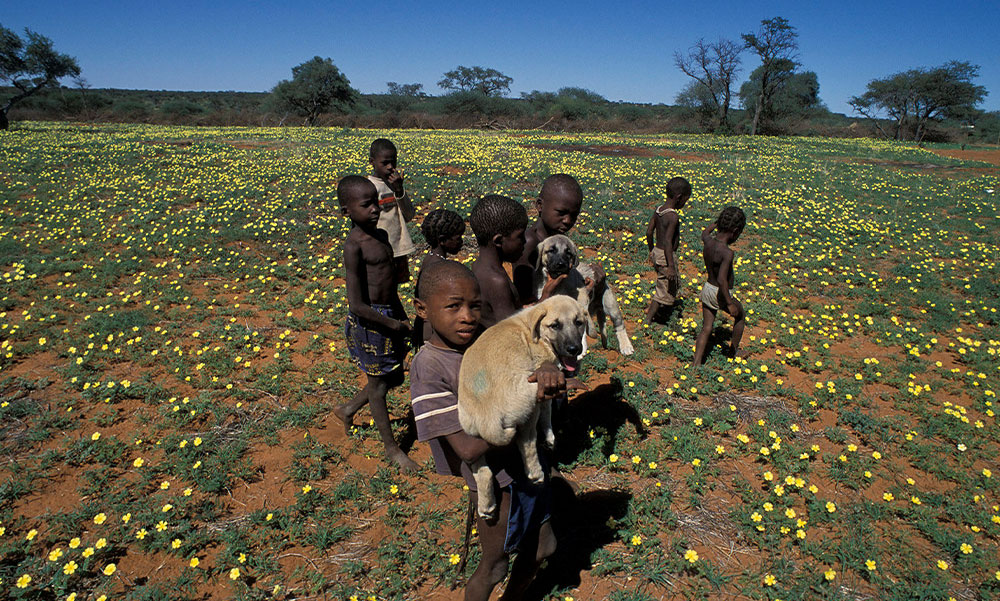New Cheetah Conservation Fund Study Assesses 25 Years of Livestock Guarding Dog Impact in Namibia
-

- by CCF Staff February 15, 2021

OTJIWARONGO, Namibia – 15 February 2021 – A long-term study compiled by Cheetah Conservation Fund (CCF) researchers, looks back at data collected over two-and-a-half decades to draw conclusions on the impact of this popular, non-lethal predator control tool for small stock farmers. This research represents the most extensive collection and longest reaching data set regarding Livestock Guarding Dog (LGD) use in Africa. In addition to highlighting the success of these dogs in preventing livestock losses, the study, published 11 February online in the Journal of Vertebrate Biology, informs current CCF initiatives to adapt this concept for other cheetah range countries in Africa and for other predator species around the world.
The responses from more than 1500 farmer surveys conducted between 1994 and 2018 were compiled and analysed by the CCF research team. The study determined that in this 25-year span, 634 CCF Livestock Guarding Dog were placed across Namibian farmlands. These dogs reduced livestock losses for 91% of the respondents, and these farmers reported being highly satisfied with their LGDs. Aside from reducing livestock losses, the main benefits of having LGDs are reported as preventing conflict/encouraging co-existence; maintaining viable predator populations, and preventing destabilisation of Namibian ecosystems.
“Cheetahs hunt by day and exist mainly on open farmlands, so they are at a greater risk for conflict with livestock farmers than other large carnivores. With fewer than 7500 wild cheetahs remaining in the wild, and with Namibia’s tourism industry dependent on having healthy populations – we are ‘The Cheetah Capital of the World’ — helping farmers develop non-lethal approaches to control predation is critical”, said Dr Laurie Marker, CCF’s Founder and Executive Director. “The CCF Livestock Guarding Dog programme was born from the need to reduce losses and facilitate coexistence. This has been central to CCF’s work from the beginning”.
CCF breeds, trains and places LGDs with Namibian farmers in exchange for a small fee. CCF works with farmers throughout the dog’s career, providing regular health check-ups and retraining or rehoming dogs when necessary. The breeds used in the programme are rare Turkish dogs known as Anatolian shepherds and Kangal dogs, distinguished by their large size, loud bark, and fiercely protective nature. Raised at CCF with goats and sheep, the dogs form bonds with the small stock they are engaged to protect. When guarding herds in the field, the bark of an LGD is most often enough to warn off predators. But if engaged, CCF LGDs are known to instinctively defend their animals.
Since 1994, CCF has helped launch similar Livestock Guarding Dog initiatives with cheetah-predator projects in South Africa, Botswana and Tanzania. In addition to reducing livestock losses and conflict, CCF LGDs are credited with sparing hundreds of cheetah and other predator species lives. CCF is currently working with other governments and organisations in Africa to assess Livestock Guarding Dogs for local application.
The authors of Twenty-five years of Livestock Guarding Dog use across Namibian farmlands are Laurie Marker, Lauren Pfeiffer, Annetjie Siyaya, Paige Seitz, Gebhardt Nikanor, Bridget Fry, Calum O’Flaherty, and Stijn Verschueren. All authors are affiliated with CCF.

# # #
Cheetah Conservation Fund
Cheetah Conservation Fund (CCF) is the global leader in research and conservation of cheetahs and dedicated to saving the cheetah in the wild. Founded in 1990, CCF is an international non-profit organisation headquartered in Namibia. CCF marked its 30th anniversary in 2020, making it the longest running and most successful conservation organisation for cheetahs. For more information, please visit www.cheetah.org.
MEDIA CONTACTS:
Dr Laurie Marker, director@cheetah.org or +264 81 124 7887
Susan Yannetti, susan@cheetah.org or +12027167756
Related Reading
-
December 6, 2024
CCF Continues to Expand its Paw Print in the Horn of Africa

